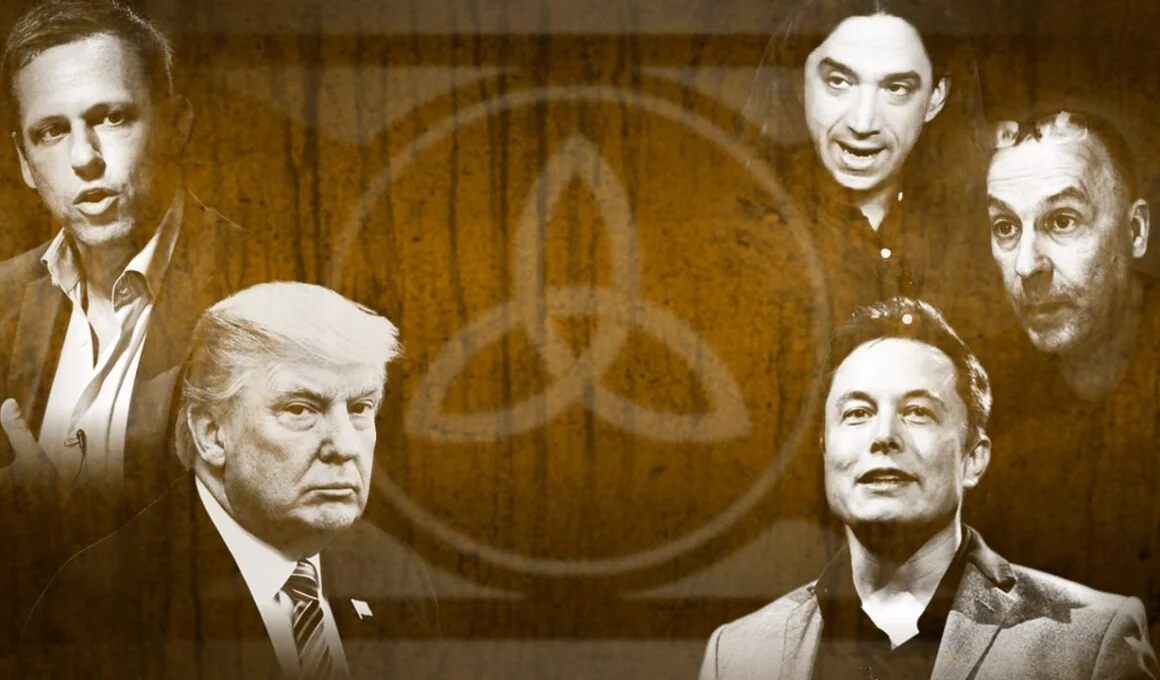The Dark MAGA Gov-Corp Technate — Part 1

```html
Decoding "Dark MAGA": The Rise of the Technocratic Technate
Unraveling the Terminology
The political landscape is awash with cryptic terms like "Dark MAGA," "Technocracy," and "Dark Enlightenment." These aren't just buzzwords; they represent distinct, interconnected philosophies embraced by some of the world's most influential figures. Understanding these concepts is crucial, as they offer a glimpse into the potential future these power brokers envision, a future we risk blindly accepting if we remain uninformed.
Elon Musk's "Dark MAGA" Declaration
Elon Musk's proclamation of being "dark MAGA" at a Trump rally sent ripples through the political sphere. What did he mean? While superficial explanations abound, a deeper analysis reveals a connection to the Dark Enlightenment, a philosophy with significant implications for governance and society.
Elon Musk's Technocratic Roots
Musk's affinity for Technocracy isn't a recent development. His grandfather, Joshua Haldeman, was a prominent figure in Technocracy Inc., a movement advocating for governance by technical experts. This family history, coupled with Musk's own pronouncements, suggests a deep-seated belief in technology as the solution to societal problems.
Musk's public statements, like his desire to build a "Martian Technocracy" and his advocacy for Universal Basic Income, further solidify his technocratic leanings. These aren't just offhand remarks; they are indicative of a broader vision for a society governed by technical "experts."
The Essence of Technocracy
Technocracy goes beyond simply having technical experts in government. It envisions a complete societal restructuring, where a select few, the "Continental Control," manage all resources and control the "social mechanism" for maximum efficiency.
This system, outlined in Technocracy Inc.'s publications, envisions a continent-wide "Technate" with no national governments. Instead, a hierarchical structure, based on a "pecking order," determines access to resources and control over various "Functional Sequences" of society.
The proposed "Energy Certificates," replacing traditional currency, would further solidify this control, allowing for complete surveillance and rationing of resources based on an individual's designated function within the Technate.
The Accelerationist Neoreactionaries
The Dark Enlightenment, a branch of the neoreactionary movement, shares common ground with Technocracy. Both emphasize efficiency and advocate for radical changes to existing power structures. However, the neoreactionaries target what they call "the Cathedral," the informal network of institutions they believe truly governs society.
Figures like Curtis Yarvin, writing as Mencius Moldbug, advocate for dismantling the Cathedral and replacing it with a system of corporate governance, or "gov-corp." This vision aligns with the accelerationist principle of embracing and intensifying disruptive forces to reshape society.
Nick Land, another prominent neoreactionary, takes this even further, arguing that democracy itself is the problem. He envisions a "dark enlightenment," where the state, operating as a corporation, maximizes shareholder value, with little regard for individual rights or democratic processes.
The Accelerationist Left
Even the left has adopted the accelerationist philosophy. Figures like Alex Williams and Nick Srnicek argue for repurposing the existing neoliberal infrastructure to achieve post-capitalist goals. They call for a "sociotechnical hegemony," where technology and economic modelling are used to reshape society according to progressive ideals.
From Ideology to Policy: Stakeholder Capitalism
These seemingly abstract philosophies are already influencing real-world policy through the rise of stakeholder capitalism. This model, championed by the World Economic Forum, promotes public-private partnerships as the primary drivers of societal change, effectively diminishing the role of democratically elected governments.
"Citizen assemblies," often touted as a means of increasing public participation, are, in reality, carefully managed exercises in legitimizing the decisions of these public-private partnerships.
Oligarch Upheaval
The current political landscape suggests a power shift among the global elite. Technocrats and neoreactionaries are gaining influence, particularly within the US government. The DOGE, headed by Musk, exemplifies this trend, potentially paving the way for increased privatization of government functions, particularly within the military-industrial complex.
Darkly Enlightened Christianity
Even Christianity has been reinterpreted through this lens. Figures like Peter Thiel, drawing on the work of René Girard, view mimetic desire and the scapegoat mechanism as fundamental aspects of human nature. This perspective informs their belief in a coming apocalypse and the need for a "correct mixture of violence and peace" to navigate it. This interpretation of Christianity, while controversial, highlights the extent to which these ideologies are permeating various aspects of society.